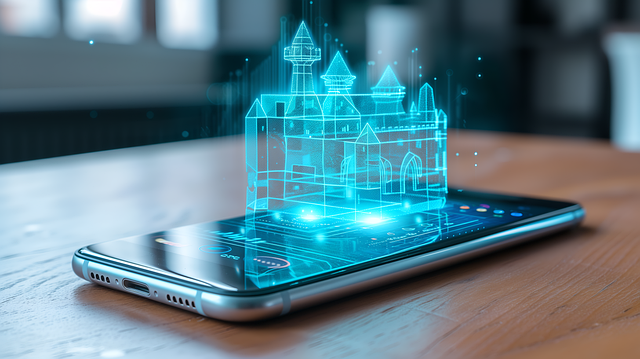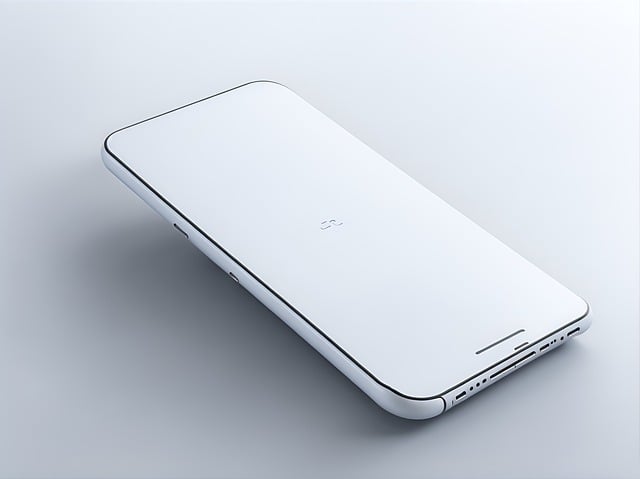As smartphones have become an essential part of our daily lives, advancements in artificial intelligence (AI) technology have played a significant role in shaping the capabilities of these devices. From personal assistants like Siri and Google Assistant to advanced camera features and enhanced battery life optimization, AI has revolutionized the way we interact with our smartphones. In this article, we will explore the evolution of AI in smartphones, how it is revolutionizing smartphone technology, its impact on user experience, and the future of AI integration in smartphones. Join us as we delve into the exciting world of AI in smartphones and discover how these intelligent technologies are reshaping the mobile industry.
- 1. The Evolution of AI in Smartphones
- 2. How AI is Revolutionizing Smartphone Technology
- 3. The Impact of AI on Smartphone User Experience
- 4. The Future of AI Integration in Smartphones
1. The Evolution of AI in Smartphones

In recent years, artificial intelligence (AI) has become an integral part of smartphones, shaping the way we interact with these devices on a daily basis. The evolution of AI in smartphones can be traced back to the introduction of virtual assistants like Apple’s Siri and Google Assistant. These early forms of AI allowed users to perform tasks such as setting reminders, sending messages, and searching the web using voice commands.
As smartphone technology advanced, so did the capabilities of AI. Today, AI-powered features in smartphones go beyond simple voice commands to include machine learning algorithms that personalize the user experience. For example, AI can analyze your usage patterns to predict which apps you will use next, suggest relevant content based on your interests, and even optimize battery usage for better efficiency.
Furthermore, AI in smartphones has enabled the development of advanced camera features such as object recognition, scene detection, and image stabilization. These AI-powered capabilities have revolutionized smartphone photography, allowing users to capture stunning photos and videos with minimal effort.
Looking ahead, the evolution of AI in smartphones shows no signs of slowing down. Future advancements in AI technology will continue to enhance the user experience, making smartphones even more intuitive and intelligent. From augmented reality applications to improved voice recognition, the possibilities for AI in smartphones are endless.
2. How AI is Revolutionizing Smartphone Technology

AI technology is revolutionizing smartphone technology in various ways. One key aspect is the use of AI-powered virtual assistants such as Siri, Google Assistant, and Alexa. These virtual assistants use machine learning algorithms to understand and respond to user commands, making our interactions with smartphones more intuitive and seamless.
Additionally, AI is being used in smartphones to improve camera capabilities. Features such as object recognition, image stabilization, and scene detection are all powered by AI algorithms, resulting in better quality photos and videos.
Moreover, AI is enabling smartphones to personalize user experiences through predictive analysis. By analyzing user behavior and preferences, smartphones can anticipate our needs and provide personalized recommendations, from suggesting apps to use at certain times of the day to predicting what we might want to do next.
Overall, AI is transforming smartphones into smarter and more intuitive devices, enhancing our daily lives in ways we never thought possible. The integration of AI technology into smartphones is only expected to continue to grow and evolve, further revolutionizing the capabilities of these indispensable devices.
3. The Impact of AI on Smartphone User Experience

AI has significantly changed the way users interact with their smartphones, ultimately enhancing the overall user experience. One of the key impacts of AI on smartphone user experience is the personalization of services. With AI algorithms constantly learning from user behavior, smartphones can now predict and suggest customized content, apps, and settings based on individual preferences. This level of personalization makes smartphones more intuitive and user-friendly.
Another significant impact of AI on smartphone user experience is the improvement of virtual assistants. Virtual assistants like Siri, Google Assistant, and Alexa have become more sophisticated thanks to AI, allowing users to perform tasks such as setting reminders, sending messages, and answering questions with voice commands. This hands-free interaction has not only increased convenience but also made smartphones accessible to a wider range of users, including those with disabilities.
Additionally, AI has revolutionized smartphone photography by enhancing camera capabilities. AI-powered features, such as scene recognition, portrait mode, and image processing, enable users to capture high-quality photos effortlessly. Furthermore, AI algorithms can optimize camera settings in real-time, resulting in improved image quality even in challenging lighting conditions.
Overall, the integration of AI in smartphones has transformed the user experience by providing personalized services, enhancing virtual assistants, and improving camera capabilities. As AI continues to evolve, smartphones will become even smarter and more intuitive, further enhancing the user experience.
4. The Future of AI Integration in Smartphones

As technology continues to advance, the integration of AI in smartphones is only expected to grow. The future of AI in smartphones holds the potential for even more personalized and intuitive user experiences. Artificial intelligence algorithms will become more sophisticated, allowing smartphones to better understand and cater to user preferences and habits.
One exciting possibility is the development of AI-powered virtual assistants that can anticipate a user’s needs and provide proactive assistance. These virtual assistants could help with tasks such as scheduling appointments, answering emails, and even predicting what information a user may need throughout the day.
Additionally, AI integration in smartphones is expected to enhance features such as camera capabilities, battery life optimization, and security measures. AI algorithms can help improve image processing, optimize power consumption based on usage patterns, and provide enhanced security through facial or voice recognition.
Overall, the future of AI integration in smartphones promises a more seamless and personalized user experience, where smartphones will truly become intelligent companions that understand and anticipate the needs of their users.


























